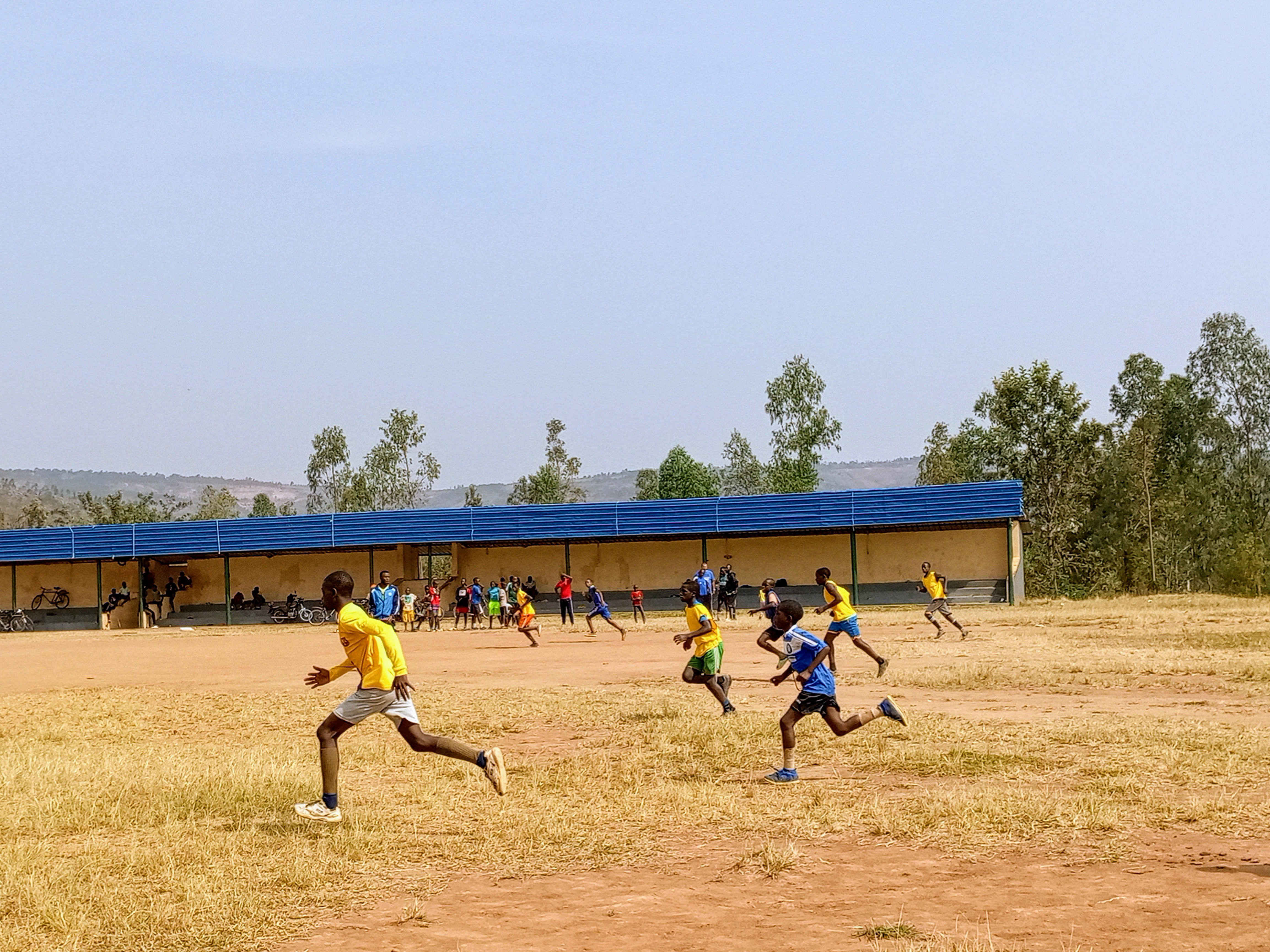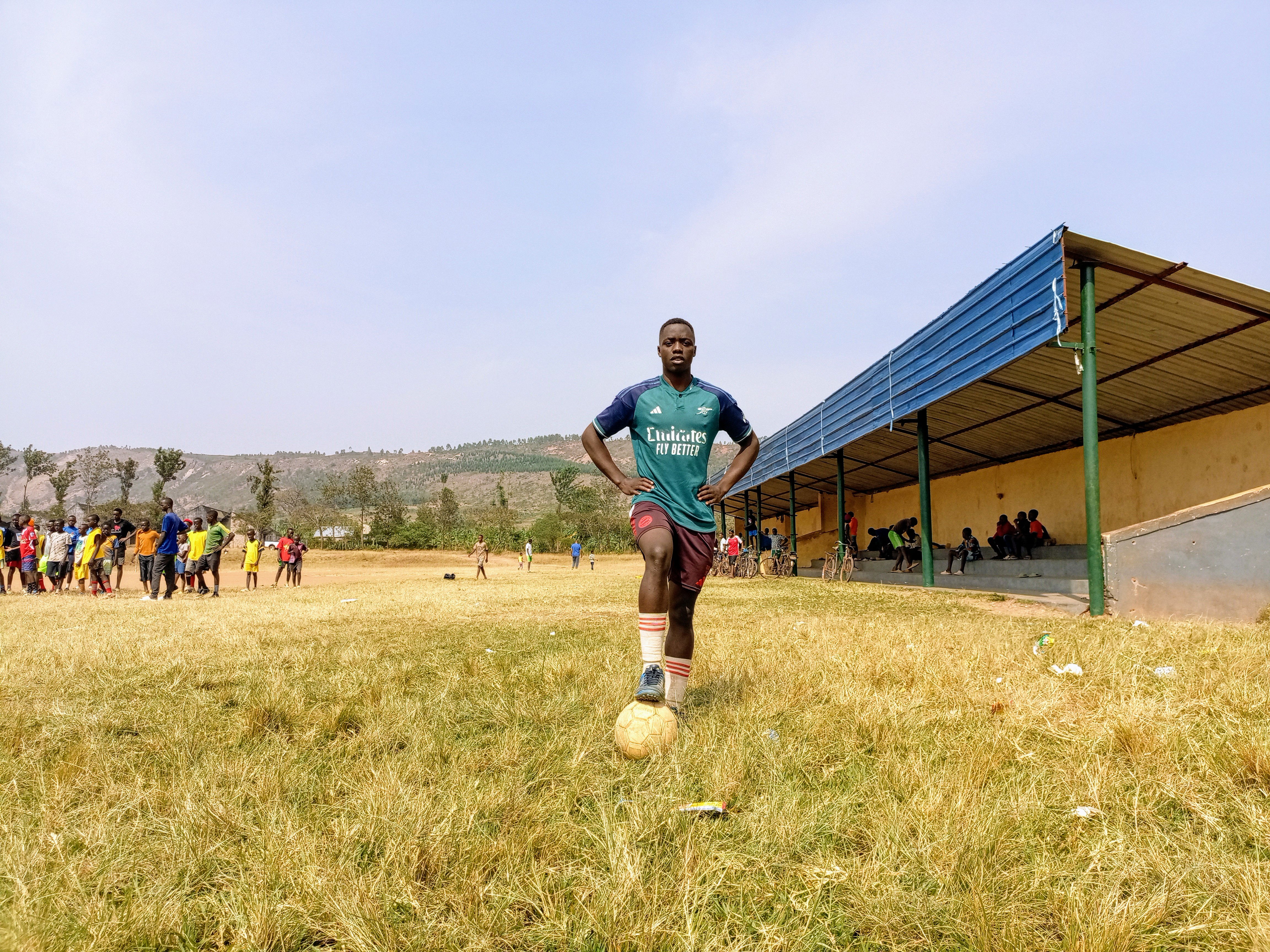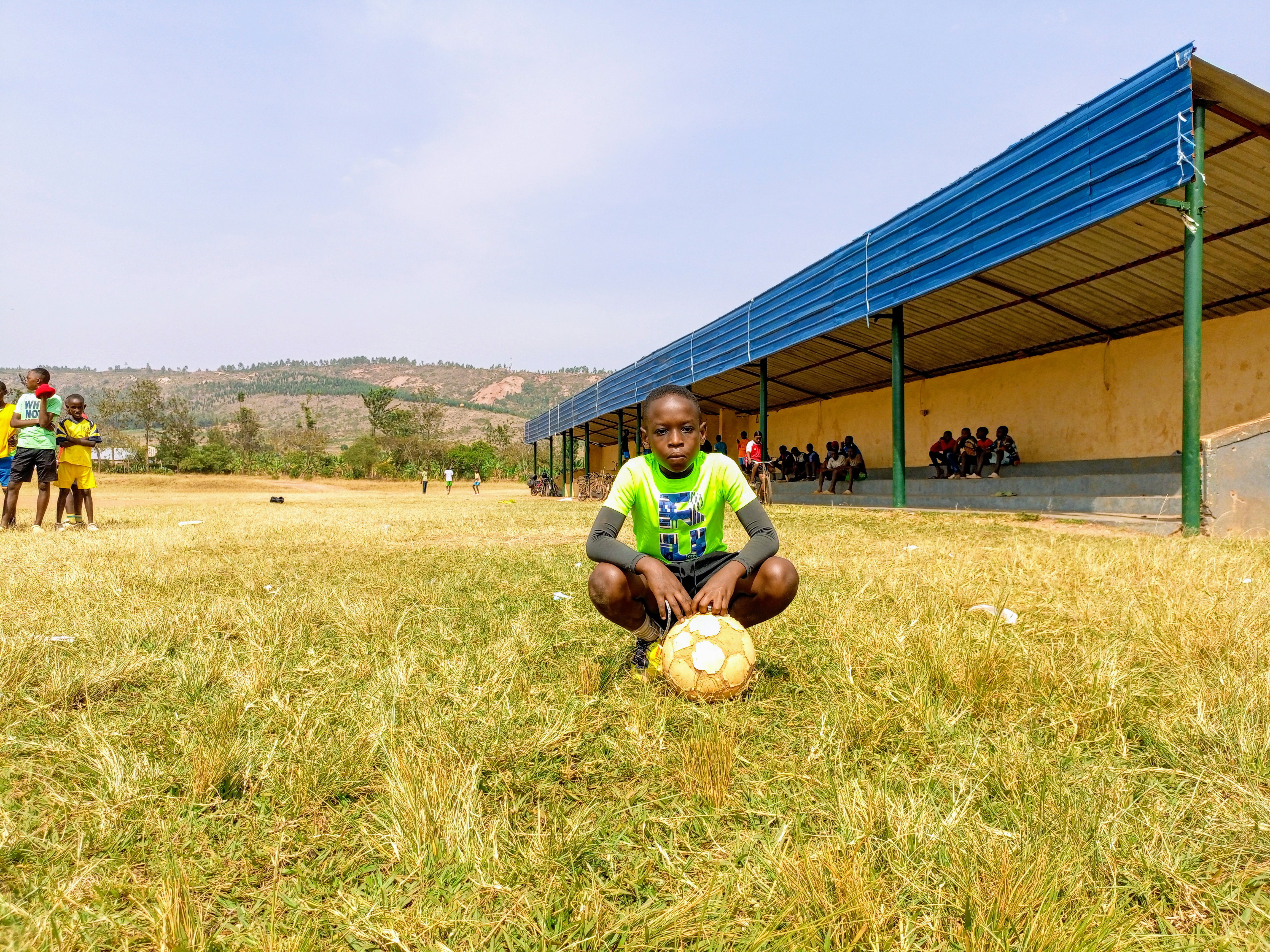Rwinkwavu Stadium: From Royal Steps to Rising Stars
After a peaceful night at Rutete Eco-Lodge, I made my way to Rwinkwavu Stadium, where I met a passionate coach named Egide Habineza. With limited resources and unwavering commitment, Egide works alongside community members to nurture raw football talent on a pitch that has clearly seen better days. (And if you're reading this from North America—yes, we're talking about soccer.)
As the kids ran drills and scrimmaged under the morning sun, the field became more than just a training ground—it turned into a stage for hope, mentorship, and determination.
Parents and elders stood quietly along the sidelines, their presence a powerful reminder that in Rwinkwavu, football isn’t just a game—it’s a vehicle for growth, pride, and opportunity. Watching this grassroots movement unfold, I was struck by the strength of collective effort and the beauty of a community shaping its future, one kick at a time.
What made the moment even more profound was learning that this very field is the oldest stadium in Rwanda, a historic site dating back to the 1930s. It was here that Rwanda’s journey into professional football began, with some of the country’s earliest organized matches played on this ground. During those formative years, the stadium was graced by none other than King Mutara III Rudahigwa, whose presence elevated the sport’s national significance. Local lore even suggests the king once “played” here—though most believe it was a ceremonial kickoff, befitting his status as guest of honor.

As the kids ran drills and scrimmaged under the morning sun, the field became more than just a training ground—it turned into a stage for hope, mentorship, and determination.
The stadium also served as home to Rwanda’s first football team, planting a seed that grew into a nationwide passion. Standing on that historic soil, surrounded by young players chasing their dreams, I couldn’t help but reflect on how far the sport has come. Rwinkwavu Stadium is more than a field—it is the cradle of Rwandan football.
While interacting with the young players, I met Nelson Irumva, a 17-year-old prodigy who rose through Egide’s program. After catching the attention of international scouts, Nelson earned a spot at the Bayern Global Academy in Munich, Germany—an elite training center run by Bundesliga powerhouse Bayern Munich.
Nelson’s ultimate goal is to become a world-class professional footballer. He understands the opportunity he’s been given and is determined to make the most of it. Grounded in self-belief and a deep sense of discipline, he carries himself like someone who knows exactly where he's headed. Before we parted ways, I offered him a few words of encouragement and wished him well on a journey that began on the dusty fields of Rwinkwavu and now stretches to the global stage.
Over the decades, Rwinkwavu Stadium has remained an overlooked cradle of talent, producing players who would go on to represent top-tier Rwandan clubs like Etincelles, Kiyovu Sport, Mukura, Marine, and Rayon Sport. One of its most celebrated product is Louis Kirenga, a goalkeeper from the local community who rose to play for the national team. The stadium’s legacy even drew the attention of international football royalty—most notably in 2019, when former Arsenal captain Tony Adams made a stopover while en route to Akagera National Park.

Nelson’s ultimate goal is to become a world-class professional footballer. He understands the opportunity he’s been given and is determined to make the most of it.
But the truth is, the stadium is now just a shell of its former self. Once equipped with locker rooms and other amenities, all that remains is the old VIP podium—still standing thanks to renovations once funded by the cassiterite mine that gave rise to the village. The pitch itself is either dusty or muddy, depending on the season, and during heavy rains, parts of it become small ponds.
Beyond the stadium, Rwinkwavu once boasted a wider sports infrastructure, including a basketball court and an Olympic-size swimming pool. Those, too, are gone—lost to time and neglect. And yet, the field continues to nurture raw potential and spark ambition in young hearts. With the right investment, this historic venue—originally built by the local mine’s management—could be transformed into a true talent mine, preserving its legacy while shaping Rwanda’s next generation of football stars.
Today, the stadium serves as the home ground for Akagera FC, a team competing in the national second division's league. But its most important role lies in what it offers the community’s youth: structure, belonging, and purpose. It’s become a safe haven where kids find guidance through sport and mentorship, steering them away from drugs, alcohol, and the many vices that often threaten young lives. In this way, Rwinkwavu Stadium is not just a sports facility—it’s a lifeline.
To conclude, Coach Egide was quick to acknowledge those who helped him along the way. He expressed heartfelt gratitude to Edward Shyaka from Partners In Health, whose support enabled him to get started when all he had was a vision and a handful of eager kids. He also mentioned Jimmy Mulisa, former captain of Rwanda’s national team and founder of the Umuri Foundation. "Despite his busy schedule, Jimmy spares time to visit the remotest parts of the country to find out what he can do to help pedestrian-run grassroots development programs." He told me.

With the right investment, this historic venue—originally built by the local mine’s management—could be transformed into a true talent mine, preserving its legacy while shaping Rwanda’s next generation of football stars.
With partnerships like these and a boost in resources, what Egide and the community have built from scratch could blossom into a fully fledged football academy—one that not only develops talent, but transforms lives in Rwinkwavu and beyond.